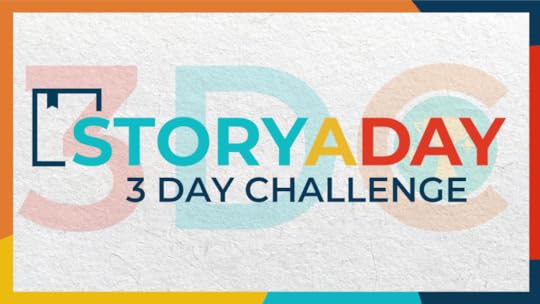Writing To Entertain
I recently caught an old interview (from 1974) with Harold Robbins. Apparently at the time he was the world’s best-paid novelist. You’d think that would cause the man to be self-important and precious, but when asked by the interviewer “Why do you think your books sell so well,” he answered, simply:
“A novel is primarily an entertainment. And if the novelist forgets that, he’s lost.”
Write To EngageEvery month at StoryADay.org I set a theme for the articles and activities. Each one supports a part of the writing life, so that we can continue to build a satisfying writing practice, month after month, without becoming overwhelmed by trying to do everything–learn everything, master everything–at once.
This months’ theme is ‘Engage’, and I think that’s why I found Robbins’s elegant formula for writing success so appealing.
He never forgot that his job was to engage with the reader.
Who Do You Write For?When we first answer the call to write, we tend to say we’re writing for ourselves. Some of us continue in that vein forever, and that’s absolutely fine.
Writing for pleasure, for mental health, to quiet the voices in our heads, or because it makes us easier to live with…these are all valid reasons for writing, and you’ll never hear me say you ‘ought’ to be doing it for any other reason or outcome.
But when people become serious about writing, and aspire to be published, there’s a trap waiting, and it’s this:
When we become serious about our writing, there is a temptation to plunge into all the courses and classes and critique groups, where other writers are trying to figure out what makes it all work.
There’s a danger, in trying to figure out if we’re using all five senses, and creating tension, and making our characters’s dialogue sound real, whether we’re showing not telling, and avoiding headhopping…that we forget job 1: to engage the reader and entertain them.
I’ve read lots of manuscripts that contained technically beautiful writing and bored me to tears.
How To Engage Readers“If you start with people that are valid, if you start with people that are exciting, people that mean things to the reader…you find that people identify with the character.”
Harold Robbins, Parkinson (BBC TV 1974)
Making sure that our writing, first and foremost, is engaging for a reader is absolutely key.
It explains why books like Fifty Shades of Grey do so well.
Everyone who knows anying about what makes ‘good writing’, agrees that they are ‘terribly badly written’, and yet somehow millions of copies sold to people who were thoroughly engaged in the story of characters who are written in a way that’s never going to win any literary prizes.
So what? It’s engaging!
Your personal tolerance for a mix of ‘page-turner’ to ‘literary language’ in your own writing will be just that: highly personal.
But I certainly find it encouraging to think that in 1974, the highest-paid novelist in the world was willing to share the secret of his success and it was simply this: write about characters who feel real, in a way that readers can identify with.
No more. No less.
Makes it feel a bit more manageable, doesn’t it?
Join The DiscussionWhat about you? Do you obsess over perfect grammar and beautiful imagery, or do you skew towards creating entertaining romps? And are you–as I am–convinced that the best stories have a bit of each? Leave a comment.
Ready to turn those sparks of wonder into finished stories?
Take the 3-Day Challenge and write three short stories this weekend!
find out moreTake the 3-Day Challenge — a short-story writing course you can finish this weekend. Go from “idea” to “The End” in three days, and give yourself the gift of an achievement you can celebrate.



